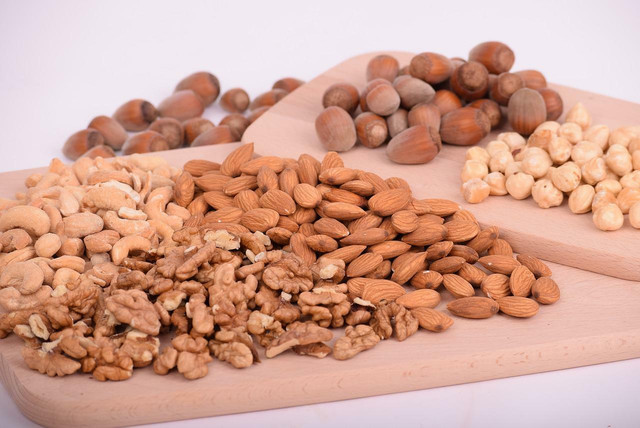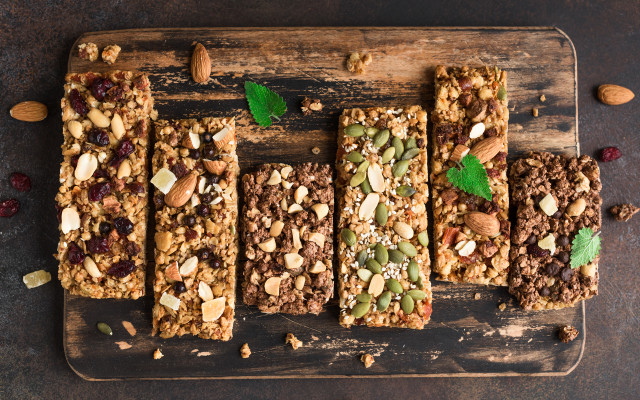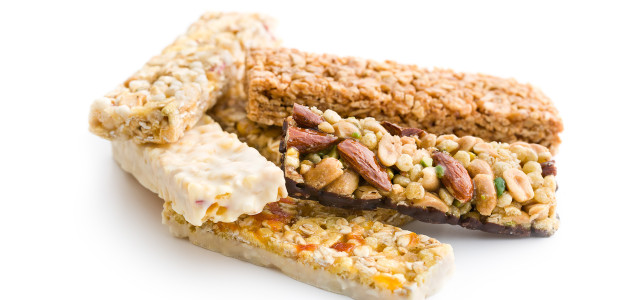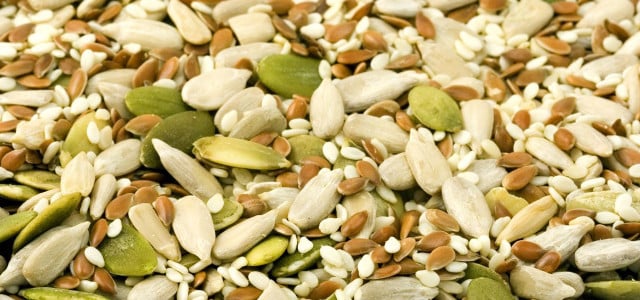Getting enough protein in your diet is essential for optimal health, but are protein bars good for you? We give you the facts — and a tasty protein bar recipe!
Protein bars are an easy source of energy and can be a great time saver in our busy lives. However, when deciding if protein bars are good for you, there are several things to consider other than the protein content itself. There are many positives. For example, many bars contain essential vitamins and minerals to help meet your daily needs. Many are full of macronutrients, carbohydrates and fats. Some even help you get your daily calcium, iron, vitamin E, B vitamins and magnesium.
Nutritional profiles can vary significantly between brands, so depending on your needs, read the ingredients. Some protein bars have lots of sugar or use unhealthy artificial sweeteners, such as high fructose corn syrup, which can reduce metabolic health.
What kind of protein do protein bars use?
The protein used varies from bar to bar or brand to brand. Some contain dairy proteins such as casein and whey, while others use eggs or yogurt powder. Vegan protein bars contain plant-based proteins from soy, peas or rice. Often these bars also include seeds and nuts to boost protein content.
Unfortunately, many protein bars rely on highly processed ingredients like whey or soy protein isolates. If you prefer to eat mostly whole, unprocessed foods, then you may wish to choose bars with more natural ingredients.
So, are protein bars good for you? Let’s start by looking at how much protein you really need.
How Much Protein Do You Need?

(Foto: CC0 / Pixabay / StockSnap)
We need protein for cell development and tissue repair — one reason it can be a good idea to get some protein after a workout. It also helps us maintain strength and muscle mass.
There is a lot of mixed messaging about how much protein we need daily, but it’s important to remember that too little can lead to protein deficiency. While this is rare in developed countries, chronically low protein consumption can lead to a range of health problems.
It’s also crucial not to overdo it, as consuming too much protein can tax the kidneys. Eating too many protein-based products can also go hand-in-hand with high sugar and saturated fat intake, so opt for protein bars and shakes with simple, unprocessed or vegan ingredients.
How much protein an individual needs varies according to their body weight. Generally speaking, you should aim for a minimum of 0.8 grams of protein per kilogram of body weight. You can get a rough idea of your requirements by multiplying your weight by 0.36.
There are also some online protein calculators, like this one from the US Department of Agriculture, that can help narrow down how much you need.
Alternative Sources of Protein



(Foto: CC0 / Pixabay / ExplorerBob)
For a long time, it was believed that the best way to get enough protein was through a meat-heavy diet. Recently, however, we’ve learned that there are many healthier alternatives that are also much better for the planet. Many vegan and vegetarian athletes, for example, excel by eating plant-based diets.
Meat is high in saturated fats, and excessive consumption is linked to poor health, obesity and chronic diseases like heart disease and diabetes. Red meat can also contain high levels of additives and chemicals. This is all in addition to the harm that factory farming does to the planet and the frequently cruel conditions animals are subjected to. We can look to many places for more sustainable and compassionate choices.
Natural plant-based and vegetarian proteins:
The list is long, but it’s worth pointing to a few foods that will really boost your protein intake. Though not exhaustive, this list includes:
- Tofu
- Lentils
- Chickpeas
- Tempeh
- Edamame beans
- Oats
- Peanuts
- Almonds
- Seitan
- Spirulina
- Quinoa
- Broccoli
- Hemp seeds
Protein powders:
There are many protein powders on the market, many of which use as their base vegan protein sources like soy, pea or rice. They come in a wide range of flavors, so try a few to figure out which one you like best.
Are Protein Bars Eco-friendly?



(Foto: CC0 / Pixabay / RitaE)
How good protein bars are for you depends on what your body needs and how much protein you eat overall — but are protein bars good for the environment?
Protein bars are usually individually wrapped, so they contribute to packaging waste and end up in landfills. You can limit the amount of garbage you create by opting for bars that come in eco-friendly and plastic-free packaging.
To go the extra mile, check if your protein bars are affiliated with a larger company that may contribute to environmental destruction. Many multinationals are far from environmentally responsible.
Healthy Protein Bar Recipe



(Foto: Colourbox.de)
This DIY protein bar recipe uses pantry staples you may already have on hand. If you do need to pick a few things up, try to stick to organic, local and fair-trade items when you can.
With this recipe, you can play with the quantities and swap out some ingredients for others depending on your preferences. Homemade protein bars can be packed with healthy ingredients.
Ingredients:
- 1 1⁄2 cup oats
- 1 cup peanut butter
- 1 cup medjool dates
- 2-4 tbsp plant-based milk (almond and hemp milk work particularly well)
- 2 tbsp ground flaxseed or chia seed
- 1⁄2 cup dark chocolate chips
- A dash of vanilla extract
- A pinch of salt
Instructions:
- In a food processor, combine the dates, peanut butter, milk and vanilla extract and blend until smooth.
- Add the oats, ground flaxseed or chia seeds, and salt. Pulse until well combined.
- Transfer mixture to a bowl and stir in the chocolate chips.
- Press into a small baking tray and flatten with the back of a spoon or your fingers.
- Place the tray in the freezer for 20 minutes.
- Once chilled, remove from the tray and slice into bars of your preferred size.
Read more:
- What is Pea Protein? Here’s What You Need to Know
- How to Cut Out Sugar from Your Everyday Diet
- Going Vegan: 5 Simple Steps Towards Veganism
Important Information regarding Health-related Topics.
** Links to retailers marked with ** or underlined orange are partially partner links: If you buy here, you actively support Utopia.org, because we will receive a small part of the sales proceeds. More info.Do you like this post?








